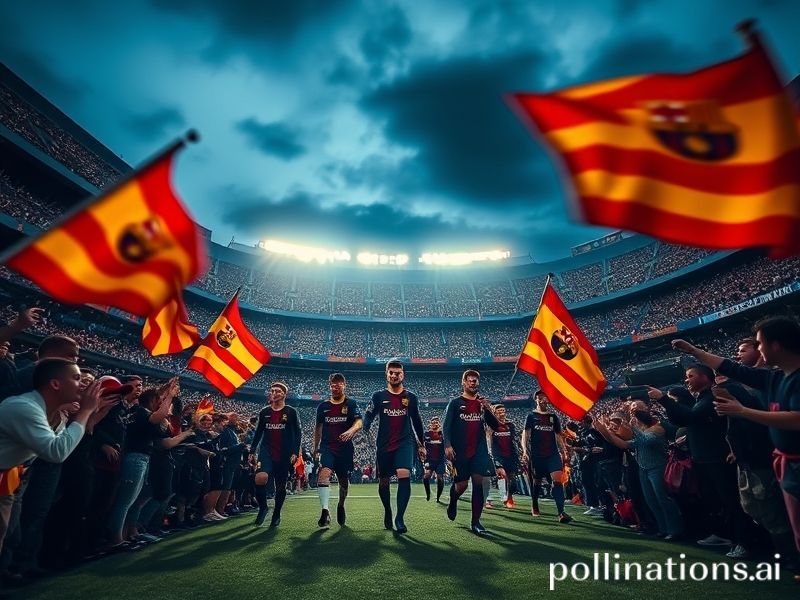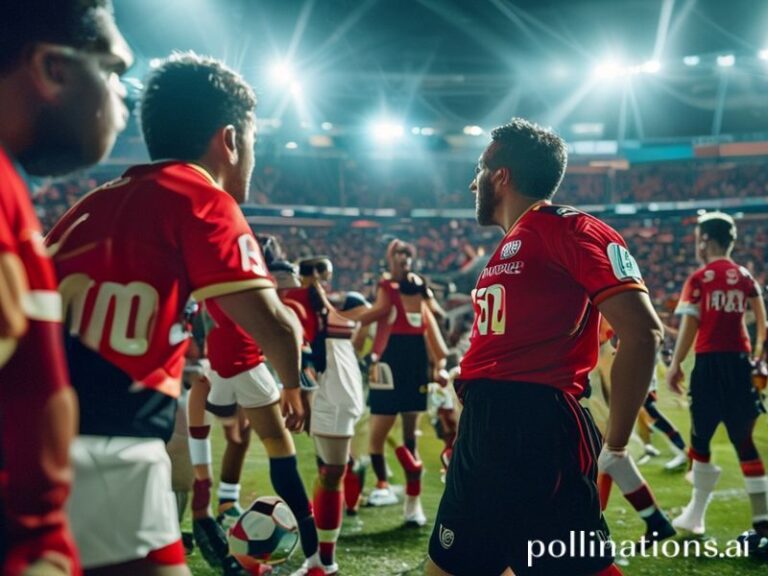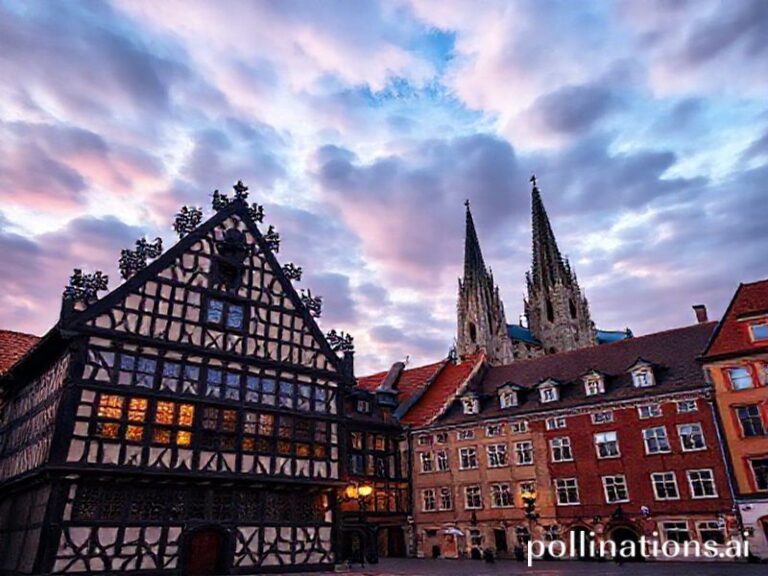From Lampedusa to Leveraged Buyouts: The Global Odyssey of a Word Called Barca
The word “barca” has always traveled better than its boats. In the Mediterranean it’s a humble fishing skiff; in Bucharest it’s a derelict tram line; in global finance it’s the leveraged buy-out formerly known as FC Barcelona; and in the collective imagination it is whatever vessel we need to escape today’s headlines. From the Bosporus to the Belt and Road, the humble barca keeps being repurposed as life-raft, status symbol, and punch-line—proof that humanity never met a crisis it couldn’t monetize.
Take the literal boats first. Off Lampedusa, wooden barcas arrive nightly, ferrying dreams priced at $1,500 a head by enterprising Libyan middle-management. The EU responds with satellite drones, naval patrols, and a €700 million deal to train the very coast guards who resell the engines back to smugglers. Somewhere in Brussels a PowerPoint slide proudly announces “disruption of irregular migration flows,” which is Euro-bureaucratese for “same boats, longer queues.” Meanwhile, the same hulls that carried olives in 1950 now carry TikTok influencers filming their own peril for content deals. The algorithm, it turns out, loves a sinking barca almost as much as it loves a cat video.
Elsewhere, the term has been upgraded. In Qatar, the word Barca is shorthand not for wood but for brand equity. FC Barcelona’s leveraged Espai Barça project—€1.5 billion of debt wrapped around a Spotify-sponsored stadium—has become the leveraged buy-out your MBA forgot to warn you about. Goldman Sachs, ever the romantic, calls it “infrastructure as soft power,” which loosely translates to “mortgaging Gaudí’s legacy to pay for Ferran Torres.” The sheikhs nod approvingly; after all, sportswashing is cheaper than desalination. When the Camp Nou’s new roof leaks, perhaps fans can collect the drops in artisanal paella pans and sell the broth as NFTs.
But the barca’s most interesting voyage is symbolic. In climate conferences from Sharm el-Sheikh to São Paulo, negotiators invoke “we’re all in the same boat” with the straight face of people chartering private jets between sessions. The metaphorical barca here is a 1.5-degree lifeboat, already listing starboard thanks to 30 years of gentle promises. Small island states request bilge pumps; petrostates insist the holes are “transition pathways.” Everyone agrees to reconvene next year in an air-conditioned desert resort, proving that irony, like carbon, now exceeds safe atmospheric concentrations.
Even in the digital realm, barca mutates. Crypto discords speak of “getting barca’d” when your portfolio sinks faster than a Senegalese pirogue in a storm. Venture capitalists respond by launching BarcaCoin, “the world’s first refugee-pegged stable asset,” backed—naturally—by a JPEG of a crowded dinghy. The white paper promises 20 percent yields and “positive social impact,” which is fintech for “greater fool still at port.”
What unites these barcas—wooden, leveraged, metaphorical, or tokenized—is the human talent for boarding last while insisting we’re captains. Whether fleeing poverty, interest rates, or ecological collapse, we climb aboard convinced the other passengers are ballast. The shipwrecks pile up accordingly, each one a data point for the next consultant’s slide deck titled “Resilience Strategies.”
And yet, cynicism has its limits. Somewhere tonight a carpenter in Dakar sands down a hull, hoping his craft outruns both patrol boats and venture capital. In Barcelona, an 11-year-old still believes the midfield can press their way out of insolvency. On the COP28 livestream, a delegate from Tuvalu asks—not unreasonably—if the rest of us might finally stop drilling holes in the floorboards. Their requests are filed under “aspirational language,” but hope, like water, keeps seeping in.
So the barca sails on, patched with debt, hashtags, and delusion, its flag stitched from every contradiction we carry. Destination unknown, Wi-Fi intermittent, life vests optional. The only certain arrival is tomorrow’s headline, already half-written in the brine.







